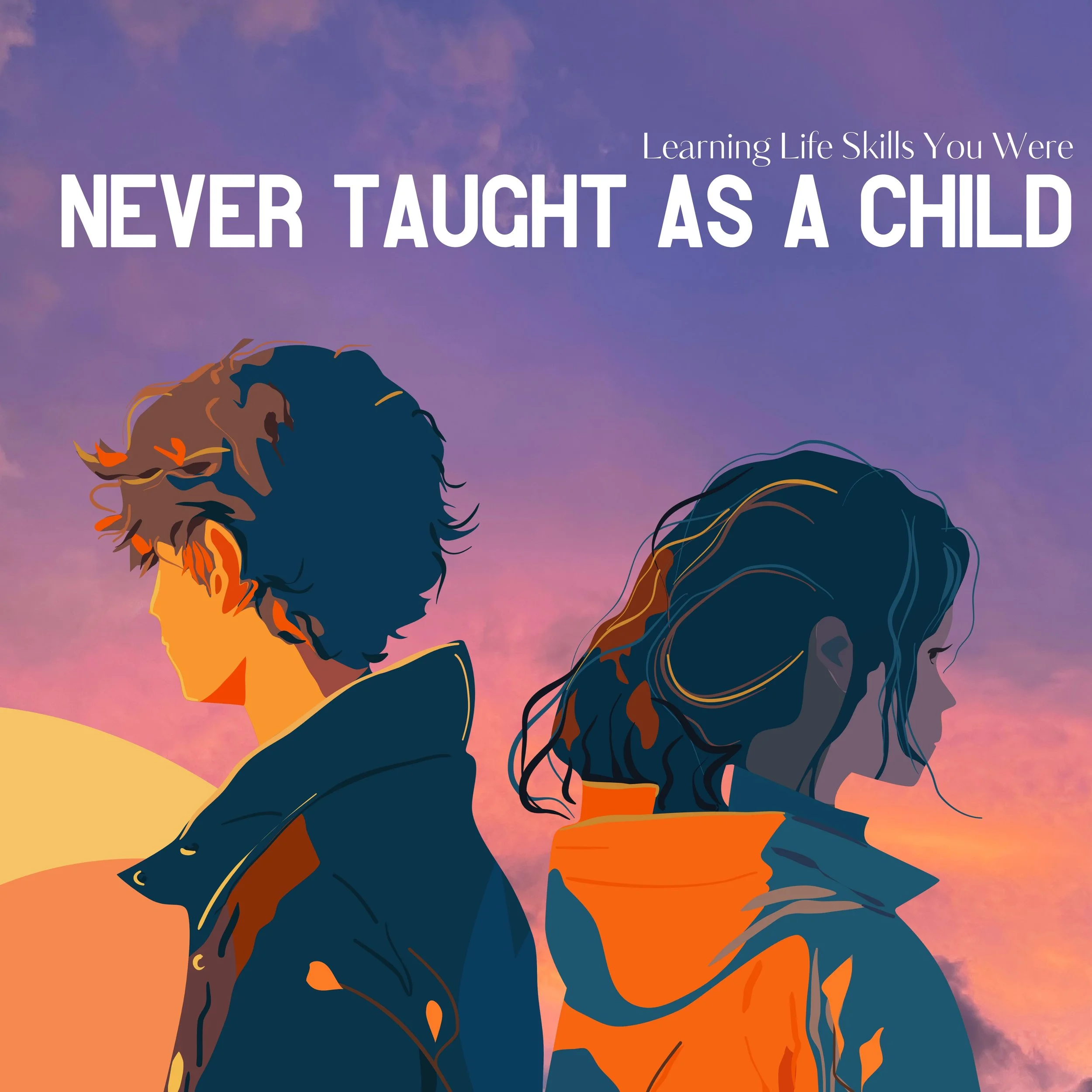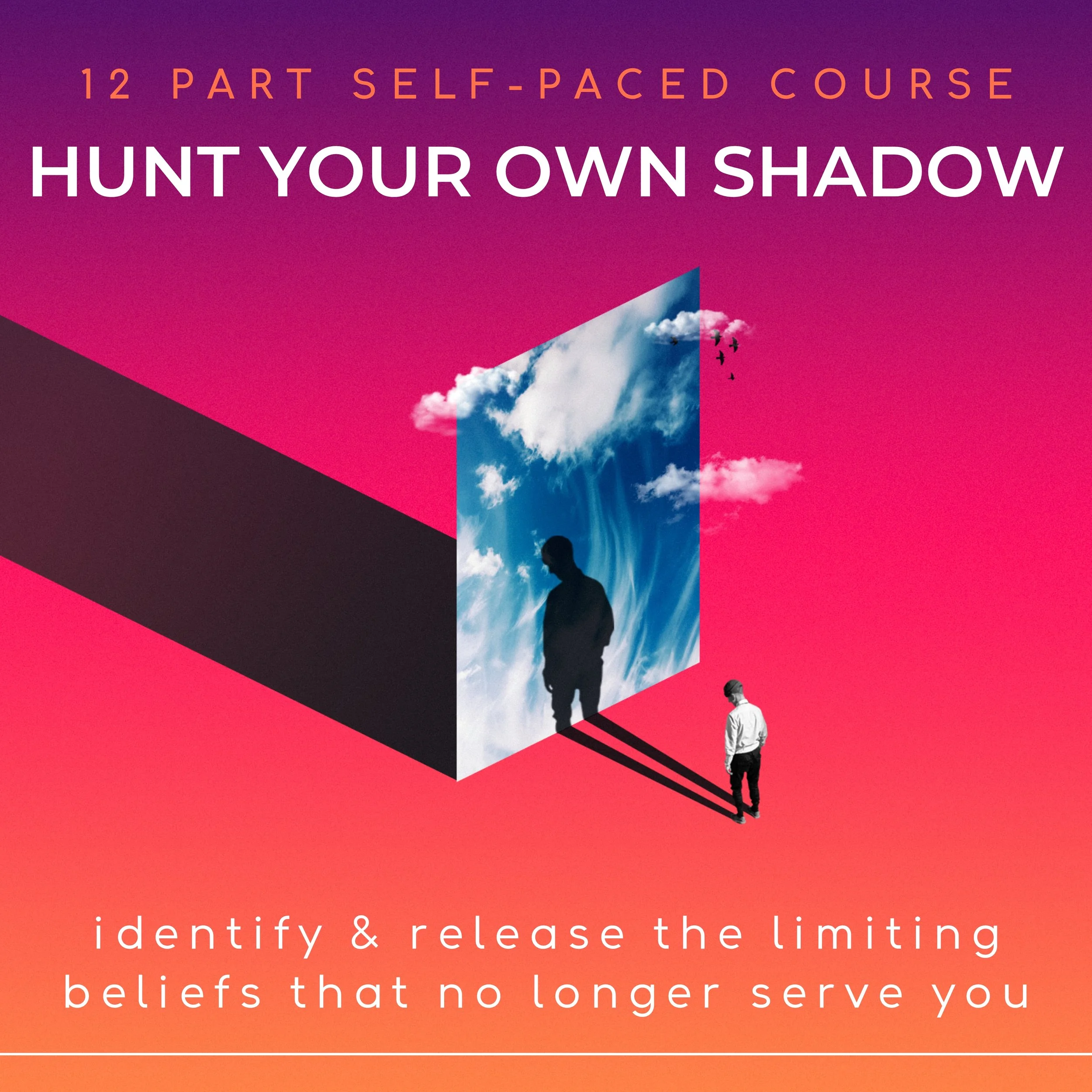Learning Life Skills You Were Never Taught As A Child
- Ch: 4.7 of How To Get Your Sh!t Together -
“You can’t stop the waves, but you can learn to surf.” – John Kabat-Zinn
Learning how to adult is a challenging prospect. There is so much to do, and so many different skills needed to successfully maintain a household, pursue a career and have successful relationships, all of which involves learning life skills, that we may not have been taught.
For those of us who grew up with abusive or neglectful parents, this challenge is compounded. Not only will there be significant gaps in knowledge coming from the lack of instruction, but there will also be an amount of inappropriate or substandard coping strategies modelled to us. We first have to recognise these coping strategies and then replace them with more positive ones. If you add to the mix issues with mental illness, and you have a recipe for breakdown.
Everyone reading this will be at different stages of life. Some will still be living at home with supportive parents, others will have left home and be on their own, still others will have a family to look after, being not only responsible for their own wellbeing, but also of dependents.
Regardless of where you find yourself, ‘proactively learning life skills’ is a must.
Over time you will have to rely more and more on yourself to fix all of the little problems that arise in your life, and perform all of the little tasks that others used to do for you. Although you may have the support now, it can’t last forever. Eventually that support will end, either through death or changes in circumstances, leaving you solely responsible for your life. You may be able to avoid this fact for the moment, but there will come a time where you wish you hadn’t. You will have wished that you took the time to learn when you had the spare time, and access to people who were willing to show you how.
Scrambling to fill knowledge holes is not a fun exercise to undertake at the best of times.
Beyond the practical need, there is also a confidence and self-belief factor at play. Knowing how to handle a situation on your own, knowing what to do to fix a problem without needing assistance, or at least knowing how to arrange the support of the appropriate expert is empowering. I hate the feeling of knowing that I need other people to do the equivalent of hold my hand through a relatively simple task, one that I should have learnt years ago. Growing up with an emotionally distant and neglectful father, I am constantly discovering things that I simply don’t know how to do because my father never took the time to show me. Time after time I would realise that I am practically incompetent in whole fields of knowledge because I wasn’t exposed to it growing up. Not that this is an excuse, at least any more.
Regardless of the cause, it is now on me to address any deficiencies that I find in myself. My anger and resentment for the treatment I received from my past won’t help me in learning life skills I now need to function as an adult.
I struggle with all kinds of handyman work, food planning and preparation, keeping a neat and clean house, and making plans via telephone. This chapter isn’t the place to delve into why I struggle with these tasks, but it is enough to know that I do. In the past these tasks have caused me tremendous amounts of anxiety to perform and subsequently resulted in bouts of negative self-talk at my incompetence, leading to depression. Often I would either avoid performing those tasks until they were absolutely necessary, or else pay someone else to do them for me. While these solutions ‘work’ they are not sustainable in the long run.
Waiting for a problem to build up and up until it can’t be avoided is a terrible idea as it forces an emotional breakdown to be the cause of action. Paying someone else is a viable option but only for a small number of tasks, as money quickly runs out. The best course of action is to take the necessary steps towards learning the life skills that I need to learn, while simultaneously addressing any connected psychological stressors that those activities trigger.
The more time I commit to learning life skills, the less reliant I am on other people, and the less stressed I get on a day to day basis.
Below is a list of basic life skills that I believe everybody would benefit from having. This list is far from comprehensive, and is clearly culturally biased to my own experiences. While some are more vital than others, please be aware that if somebody has used those skills to help you in the past, you may need to know how to do it for yourself in the future.
If you find yourself recoiling away from an item, suggesting to yourself that ‘no way, that is not me’, then that is probably a good place to consider starting your education. There is a reason you are avoiding it.
TAKE ACTION
1) Consider your competency at performing each of the items listed below. For each task that you feel comfortable performing, put a line through it, leaving the items that you don’t feel comfortable performing visible.
- How to use a hammer, drill and saw
- How to putty a hole in the wall
- How to assemble furniture
- How to sew by hand and with a machine
- How to clean a toilet and shower
- How to iron, vacuum and mop
- How to drive (manual and automatic)
- How to tow a trailer
- How to change a tire
- How to jump start a car
- How to clean and maintain a car
- How to maintain a lawn and garden
- How to de-clog a drain
- How to read a map
- How to use public transport
- How to connect a computer to a printer
- How to pay a bill
- How to use the features of your computer and phone effectively
- How to back up important files on a computer
- How to act safely online
- How to maintain privacy online
- How to Google information effectively
- How to write a resume
- How to store food safely
- How to cook a variety of basic healthy meals
- How to complete a tax return
- How to look up work places rights and pay rates
- How to acquire legal assistance
- How to swim
- How to talk in front of a group of people
- How to approach and talk to a stranger
- How to perform basic first aid
- How to apply for a rental property
- How to apply for a bank loan
- How to connect amenities to a house
- How to book accommodation
2) Using the skills gained in chapter 4.2, ‘Learn How To Learn’, begin the process of learning life skills still left visible, crossing them off as you learn.
———
One of the best approaches I took to learning life skills was to watch people doing them and ask questions. For example I originally had to pay roadside assistance to change my tyres when I got a flat, but over time I watched them perform the task and asked them to show me how to do it. Eventually I learnt how to do it on my own.
Other ways to learn those skills come in the form of taking a short course (eg: first aid or swimming), asking instore experts for help (eg: how to assemble furniture, use a specific tool), or by asking online forums for assistance (eg: how to back up a computer).
Nobody ‘just knows’ how to do anything, they had to learn those skills. Therefore if you see somebody performing a task that you find impossible, there is definitely a way through, you just need to take action.
———
Frequently Asked Questions
Q) How do I know what I need to know?
A) If you have a task uncompleted, or have paid someone else to do it for you, or relied on a friend or family member for support, then that is a good starting point. Another good place to start is by focusing on the tasks that you ‘always wished’ you could do.
Q) I don’t have time to learn a bunch of random skills. I can afford to pay someone else to do it for me.
A) True, there is always a place for outsourcing the assistance of other people to do the work for you. However if you have a basic understanding of the tasks that you are paying for, you will be in a better position to know if the person you are paying to perform the task is doing a good job or not. If you have no knowledge of the task, you are forced to just take their word. Most people are honest, but some are not and will take advantage of your ignorance.
Resources
How To Instructionals
Dad, How Do I (YouTube)
Summary
Empower yourself by filling any learning gaps. It is better to learn the skills that you may need before you need them, rather than scrambling to learn under pressure.
If this post has resonated with you, I would love your support.
Your shadow is the gateway to a more authentic you.
This course is your guide to profound inner work. Through powerful insights, guided prompts, and proven techniques, you'll navigate your shadow, heal unresolved wounds, and reintegrate the parts of yourself you’ve long ignored.
What’s Inside:
12 x Guided Meditation & Contemplations
12 x Introspective Prompts
12 x Expansion Challenges
A comprehensive instructional PDF guidebook
Unlimited email coaching for ongoing support and personalized guidance
Explore full course details and watch intro video here!
This isn’t just about healing, it’s about meeting your shadow head-on, embracing every part of yourself, and reclaiming your full power.
Are you ready to face what’s been hidden and step into your truth?


